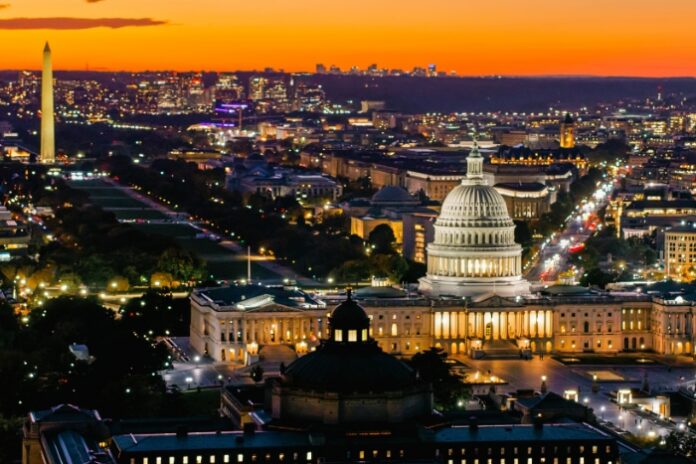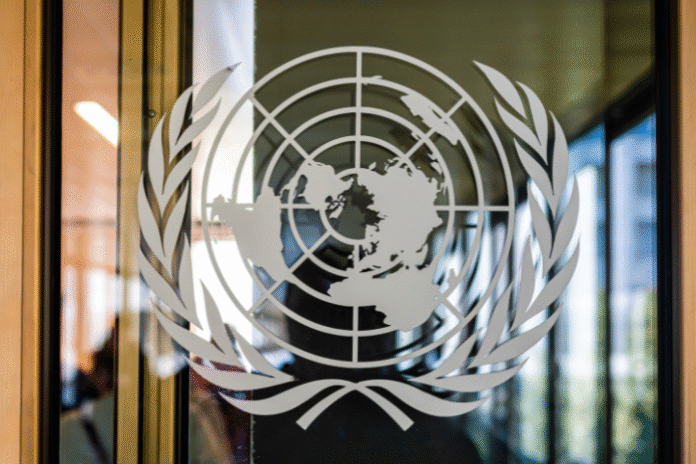Lawsuit Alleges U.S. Government Violated Trust Responsibilities, Misused Tribal Funds
HARRISBURG, Penn. — May 22, 2025 — The Wichita and Affiliated Tribes and the Washoe Tribe of Nevada and California, represented by DiCello Levitt, Selendy Gay, Fields Han Cunniff, and Saltz Mongeluzzi Bendesky, have filed a landmark lawsuit against the United States Government arising out of an historic—and, for too long, ignored—tragedy: the United States’ creation and deployment of the Federal Indian Boarding School Program.
According to the complaint, the U.S. Government used Native Nations’ own funds to finance a program of prison-like boarding schools, spread throughout the United States, designed to separate Native children from their families, and destroy their language, customs, and cultural identities. The complaint details the extensive harm caused by the Boarding School Program, including physical and sexual abuse, forced labor, and the loss of life, language, and culture.
These abuses, widely known in Native communities, were not definitively documented until recently, when the United States Department of the Interior, under the leadership of then-Secretary Deb Haaland, released reports in 2022 and 2024 based on an investigation of the Boarding School Program. The reports make clear that the evidence confirming the financing of the Boarding School Program has been and is still under the United States’ exclusive control.
The lawsuit, filed in the United States District Court for the Middle District of Pennsylvania—home to one of the Program’s most brutal institutions, the Carlisle Indian Industrial School—seeks an accounting of the funds used to support the Federal Indian Boarding School Program. These funds included monies taken directly from tribes themselves, for the supposed purpose of providing money to support Native children’s education.
As the complaint alleges:
The United States Government, the trustee over Native children’s education…has never accounted for the funds that it took, or detailed how, or even whether, those funds were ultimately expended. It has failed to identify any funds that remain.
The harm inflicted by the Boarding School Program endures in the broken families and poor mental and physical health of survivors of the Boarding Schools and their descendants. It endures in the cycles of poverty, desperation, domestic violence, and addiction that were born of the Boarding School Program. It endures in the silence of lost language and culture, and the quiet desperation of so many survivors and their descendants, families that carry scars down through generations. It endures in the missing remains and unmarked graves of the children who died.
The United States systematically sought to destroy Native children’s connections to their families, homes, languages, and cultural and religious practices, which, in turn, deprived those children of the skills necessary to prosper and participate in Native Nations’ communities, indoctrinated the children into servile positions, and condemned Native Nations to cycles of poverty, violence, and drug addiction.
Beyond being a national disgrace, the Boarding School Program was an undeniable violation of the United States’s longstanding, explicit, and ongoing obligations (including, but not limited to, obligations guaranteed by treaty and statute) as trustee tasked with providing Native children’s education.
This trust duty was never disavowed and never ended, and the United States continues to recognize its “responsibility for . . . education of Indian children,”[1] based on a “unique and continuing trust relationship with and responsibility to the Indian people for the education of Indian children.”[2] The United States has a moral, political, and legal responsibility to fully account for the Boarding School Program.
“The Boarding School Program represents one of the most shameful chapters in American history,” said Serrell Smokey, Chairman of the Washoe Tribe of Nevada and California. “Our children were taken from us, subjected to unimaginable horrors, and forced to fund their own suffering. This lawsuit seeks to hold the U.S. Government accountable for its actions and to ensure that the truth is finally brought to light.”
“The United States took upon itself the sacred trusteeship over Native children’s education—a trust responsibility that has remained unbroken for 200 years. The harm caused by the Boarding School Program is nearly unimaginable and has been felt by every single Native American man, woman, and child. At the very least, the United States has a legal and moral obligation to account for the Boarding School Program, including a detailed explanation of the funds that it took and spent,” said Adam Levitt, Founding Partner of DiCello Levitt. “Justice demands a remedy for the United States’s actions. And that remedy begins here with an accounting.”
“The Boarding School Program inflicted profound and lasting harm on our communities,” said Amber Silverhorn-Wolfe, President of the Wichita and Affiliated Tribes. “We are seeking justice not only for the survivors but also for the generations that continue to suffer from the intergenerational trauma caused by these schools.”
“There has never been a trust lawsuit tied to the United States’ actions concerning Native education,” said Faith E. Gay of Selendy Gay. “We are bringing this lawsuit now because the 2022 and 2024 Federal Indian Boarding School Initiative Investigative reports finally revealed, in horrific detail, the scale and scope of the U.S. Government’s actions. Before these reports, key information relating to the Boarding School Program was hidden from the public, and it remains under the United States’ exclusive control. As our claims allege, the time has come for our country to account for the significant harm inflicted on Native children in violation of our treaties and statutes.”
“The Boarding School Program was aimed at the complete eradication of Native culture,” said Richard Fields, Founding Partner of Fields Han Cunniff. “Given the immense harm caused by this program, it is clear that a reckoning is necessary. We are proud to stand alongside the Wichita, Washoe, and affiliated tribes in their fight for what is right.”
The case is Wichita and Affiliated Tribes v. Burgum and was filed in the United States District Court for the Middle District of Pennsylvania. A copy of the complaint is available online here.
The Indian Removal Act was signed on May 28, 1830, and resulted in the forced relocation of many tribes. Almost exactly 195 years later, it is long past time for the United States to be held to account.
As U.S. Supreme Court Justice Neil Gorsuch recently wrote in another landmark case regarding Native American rights, the time for the United States to fulfill its sacred promises made in laws and treaties has come: “Unlawful acts, performed long enough and with sufficient vigor, are never enough to amend the law. To hold otherwise would be to elevate the most brazen and longstanding injustices over the law, both rewarding wrong and failing those in the right.”
About DiCello Levitt
At DiCello Levitt, we’re dedicated to achieving justice for our clients through class action, public entity, environmental, mass tort, securities, financial services, antitrust, business-to-business, whistleblower, personal injury, and civil and human rights litigation. Our lawyers are highly respected for their ability to litigate and win cases—whether by trial, settlement, or otherwise—for people who have suffered harm, global corporations that have sustained significant economic losses, and public clients seeking to protect their citizens’ rights and interests. Every day, we put our reputations—and our capital—on the line for our clients.
DiCello Levitt has achieved top recognition as Plaintiffs Firm of the Year and Trial Innovation Firm of the Year by the National Law Journal, in addition to its top-tier Chambers and Benchmark ratings. For more information about the firm, including recent trial victories and case resolutions, please visit www.dicellolevitt.com.
About Selendy Gay
Selendy Gay is an elite litigation firm dedicated to excellence in disputes, including trials, appeals, arbitrations, and investigations. The firm leads multiple high-stakes trials each year across an array of industries and jurisdictions. Selendy Gay’s partners are known for successfully defending bet-the-company matters and pursuing massive plaintiff-side judgments, obtaining more than $40 billion in recoveries. The firm is also renowned for its commitment to the public good, with public interest litigation victories that are as significant as those in commercial matters.
For more information about the firm, please visit www.selendygay.com.
About Fields Han Cunniff
Fields Han Cunniff PLLC has represented over half of the population of Tribal Nations across the United States in high-stakes litigation aimed at addressing systemic injustices and promoting long-term community wellbeing. The firm has played a leading role in holding major corporations accountable for the harms caused by the opioid crisis and the impact of social media on Indigenous youth. With a deep commitment to supporting sovereignty and self-determination, Fields Han Cunniff works closely with Tribal governments to pursue litigation strategies that protect their interests and strengthen their communities. Learn more at www.fhcfirm.com.
About Saltz Mongeluzzi Bendesky
SMB is a powerhouse Pennsylvania firm of trial lawyers with a national reputation. SMB’s lawyers have consistently obtained record breaking results on behalf of victims in cases arising from disasters across the country including the Surfside Condominium Collapse in South Florida, the derailment of Amtrak Train 188 in Philadelphia, and the sinking of Stretch DUKW 07 in Branson Missouri. For more information about the firm visit www.SMBB.com.
Media Contact
Caitlin Whitehurst, Director of Communications, DiCello Levitt, cwhitehurst@dicellolevitt.com
[1] Indian Self-Determination Assistance Act, 25 U.S.C. § 5301(b)(2).
[2] 25 U.S.C. § 2000; 25 U.S.C. § 2501(b).


